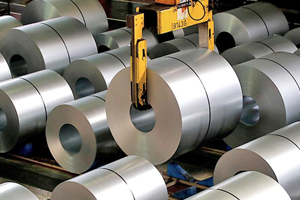What's the real difference between T1 and T2 in ASTM A463? Can T1 replace T2?
The Evolution of Continuous Hot-Dip Coating Technology
Let’s first take a look at the history of the continuous hot-dip process:
In 1930–1931, the Sendzimir process was developed, marking the beginning of large-scale industrial production of coated steel through continuous hot-dip galvanizing.
Between 1939 and 1940, based on the Sendzimir process, Armco Inc. in the United States developed aluminized steel sheets. However, for more than 50 years, aluminized steel was not widely used due to its poor workability — molten aluminum quickly reacts with the steel substrate to form Fe-Al intermetallic compounds, which are hard and brittle, significantly reducing the formability of the product.
In 1999, ArcelorMittal successfully developed aluminum-silicon coated steel, solving the above issues by adding silicon into the coating layer. This innovation improved formability, heat resistance, and corrosion resistance, making the material much more suitable for industrial applications.
In 2006, the ASTM A463(aluminized steel coil) standard was introduced, officially defining two types of aluminum-based coatings:
Aluminized steel coil Type 1 (T1): Aluminum-silicon alloy coating, typically 80–150g/m², with 5–11% silicon content.
Aluminized steel coil Type 2 (T2): Pure aluminum coating, with a minimum coating weight of 200g/m².
Currently, there are only around 12 manufacturers worldwide producing aluminized steel, most of whom produce only T1. According to the latest research, fewer than 2 manufacturers can produce T2 — possibly only one remains. Due to low order volumes, high production difficulty, unstable lead times, and excessively high prices, T2 is becoming increasingly difficult to obtain, and many projects have started replacing T2 with T1.
Can T1 Replace T2? Is This Scientifically Valid?
Let’s analyze this question from three aspects of metal protection:
1. Weather Resistance
Technically speaking, aluminum forms Al₂O₃ (aluminum oxide) during oxidation, while silicon forms SiO₂ (silicon dioxide). Though Al₂O₃ is slightly more stable than SiO₂, the bond-breaking energies for both (above 1700°C and 2050°C respectively) are extremely high. Therefore, under normal conditions, both coatings exhibit excellent and similar weather resistance, with T1 being slightly inferior to T2 in this regard.
2. Chemical Resistance
Aluminum is a chemically active metal, while silicon is a non-metal. T1 (Al-Si coated steel) shows better chemical resistance than pure aluminum (T2) in acidic and alkaline environments. In this aspect, T1 outperforms T2.
3. Mechanical Resistance
Due to the presence of silicon, the Al-Si coating in T1 inhibits the formation of excessive Fe-Al intermetallic layers, which significantly improves formability. Furthermore, the coating hardness of T1 is slightly higher than that of T2. Therefore, T1 is clearly better than T2 in terms of mechanical resistance.
Conclusion and Forecast
In real-world applications, weathering environments are complex, often involving not just oxidation or heat but also acidic and alkaline factors. Therefore, we believe that as long as T1 coating thickness is increased to meet T2 standards, T1 can effectively replace T2 in industries such as petrochemical and new energy.
However, T2 cannot easily replace T1, because poor formability remains the core limitation of T2 — and this is exactly why T1 demand has been growing rapidly in recent years. Users can confidently choose T1 products for their projects.
These conclusions are based on our in-depth consultation with manufacturers, literature research, and material analysis considering industry-specific needs and element properties.
We also boldly predict that due to its high cost, production difficulties, limited demand, and long lead times, the T2 coating may eventually be discontinued and phased out. The above information is for reference only.
At MESCO STEEL, we are always committed to new technologies, new materials, and innovative processes. If you have any related needs or questions, we welcome communication and discussion!

MESCO STEEL
Email : mesco@mescogroup.com.cn
Mobile / Whatsapp: +86 15134565556
Website:www.mescogroup.com.cn
Sincere, Professional, Effective, Innovative!
18years 90countries 600+clients

